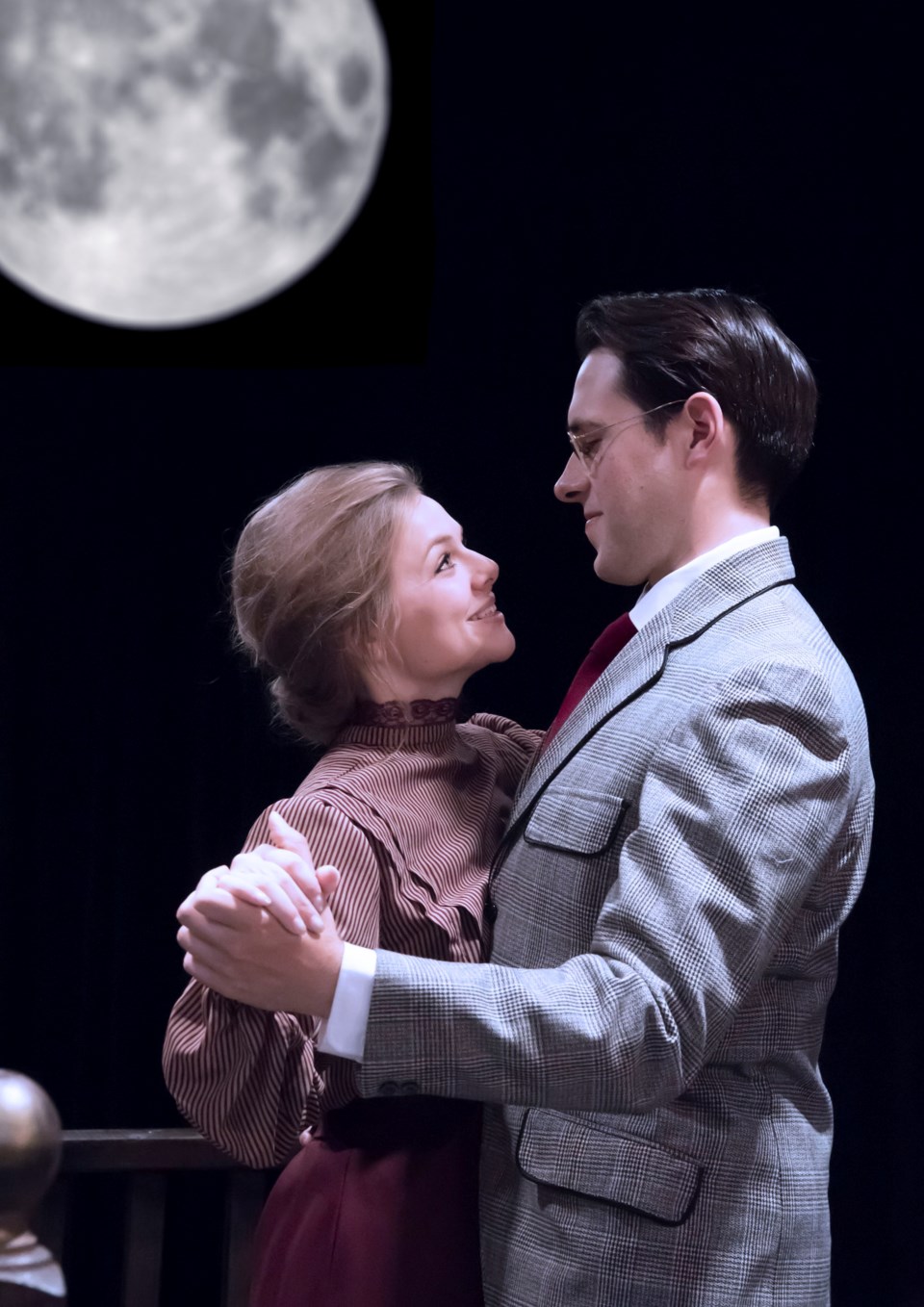PREVIEW
Silent Sky
Oct. 2 to 12
Walterdale Theatre
10322 83 Ave., Edmonton
Tickets: $18 to $20. Tickets at the door or through tixonthesquare.ca
Walterdale Theatre starts its 61st season with playwright Lauren Gunderson’s Silent Sky, a dramatic play about Henrietta Leavitt, a 19th century genius whose career produced unprecedented discoveries in astronomy.
Gunderson’s play takes place from the time the Radcliffe College student left home to work at the Harvard Observatory until she died of cancer at the age of 53.
Initially excited about working at the observatory, Leavitt quickly became frustrated. As a woman, she was prohibited from using the telescope and was assigned a menial role as a “female computer.” That meant she tabulated data from photographic plates in order to measure and catalogue the brightness of stars.
By studying a star’s luminosity, Leavitt’s calibrations allowed scientists to compute the distances to other stars and even remote galaxies. Her discoveries of measuring stars on an intergalactic scale paved the way for the modern concept of an expanding universe.
“She created major advancements in science and astronomy, yet everyone I talked to, no one knows who she is,” said director Kim Mattice Wanat.
Wanat is founder and artistic director of Opera NUOVA as well as owner of St. Albert’s Dinner Factory.
She first discovered Silent Sky while researching plays for a Masters thesis in Fine Arts at the University of Alberta.
“It’s a beautifully written play and it has a lot to say about the passions and challenges of having a career for women at that time,” Wanat said.
However, she is quick to point out that the play is not written with a feminist slant.
“There are strong themes about questions we have had for years about our lives and how we find meaning, whether it’s through science or religion. And it speaks to women’s value in intellectual forms and the conflicts that arise when pursuing a career with passion.”
In one scene, Leavitt has a mental block and is unable to make a necessary breakthrough. As she listens to her sister playing a symphony on the family’s piano, the music unlocks the mental key.
There is no hard information to confirm this event took place. However, Wanat believes Gunderson included it as way to say education needs to be more than math and science.
“We need arts because they help open minds creatively and you see problems from a different point of view or perspective. The scientific mind needs to have this creative juice to stay open to all possibilities.”
Gunderson also added a romance between Leavitt and Peter Shaw, one of the scientists at the observatory. However, at one point, she returns to the family home to support her ailing father and when she returns, Peter is living in a forced marriage with a woman he does not love.
“The key to the play is to inspire us to live our passion. At the centre of it all, her passion was a love affair with the vast sky in all its wonder.”
“This play doesn’t have the dryness of a science paper. It’s witty and humorous. Henrietta is a real character. It’s a delight to watch and it moves at great speed. And the final monologue is so touching.”




